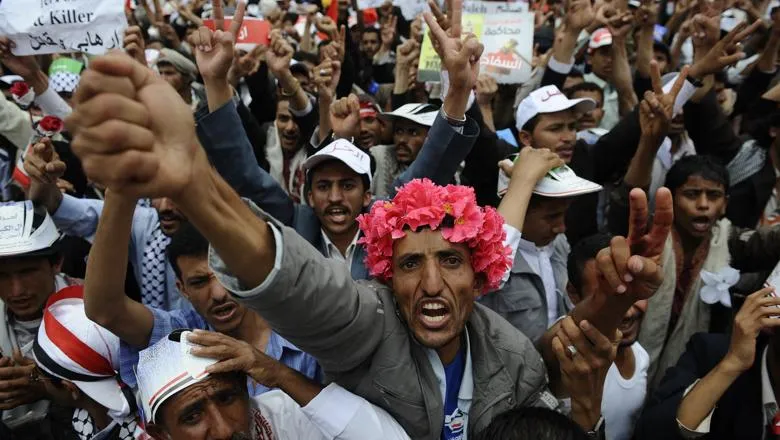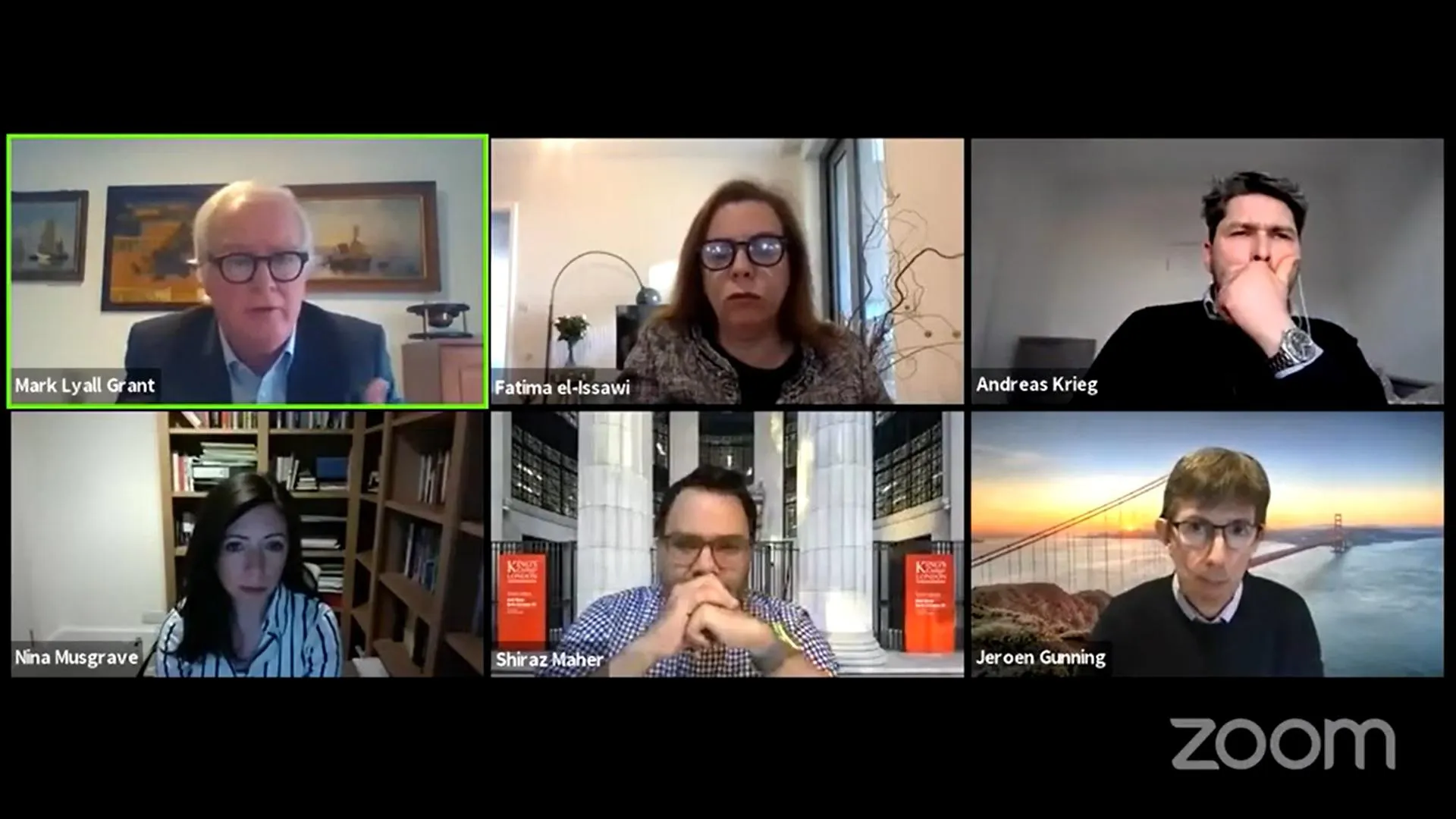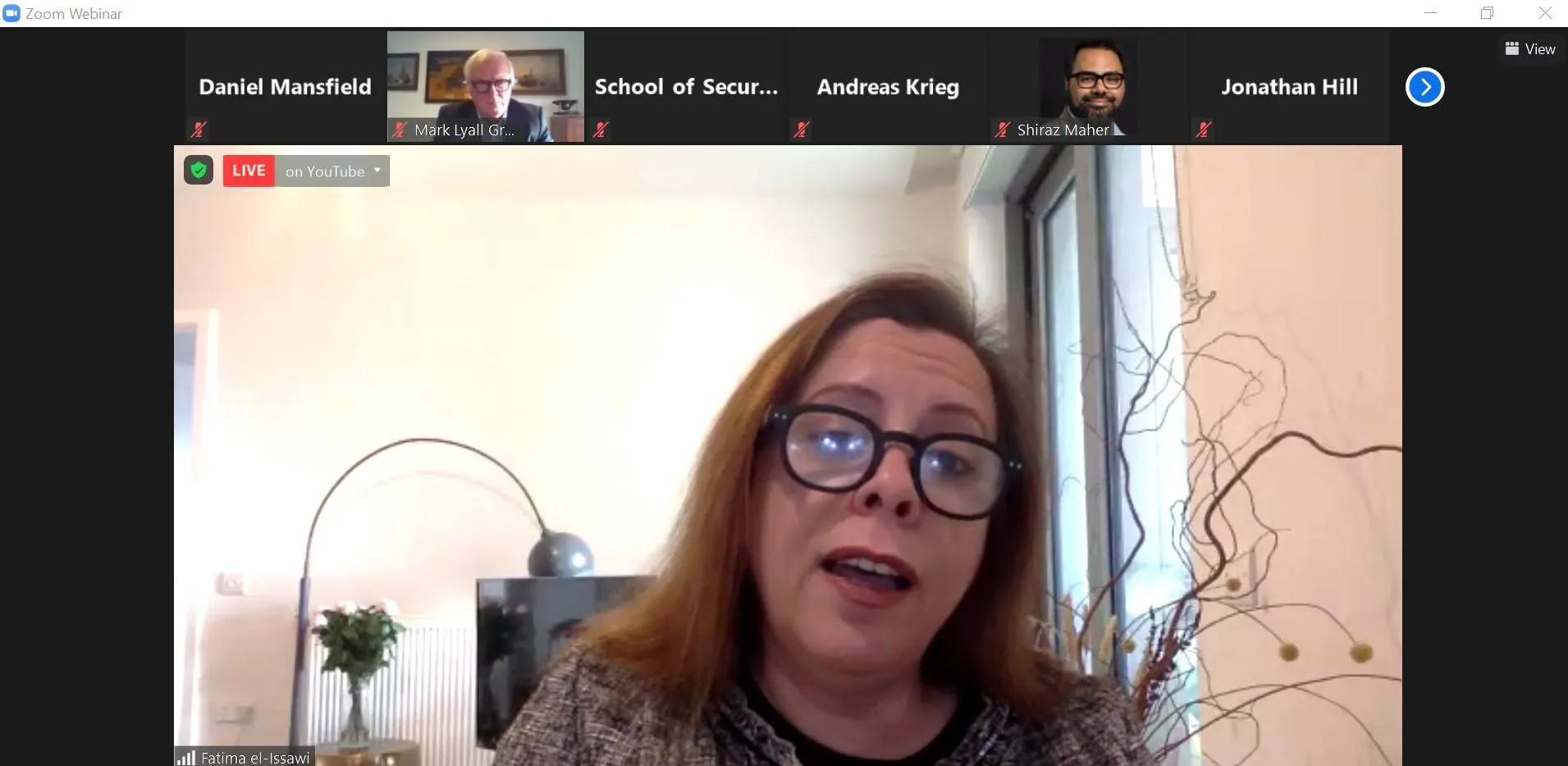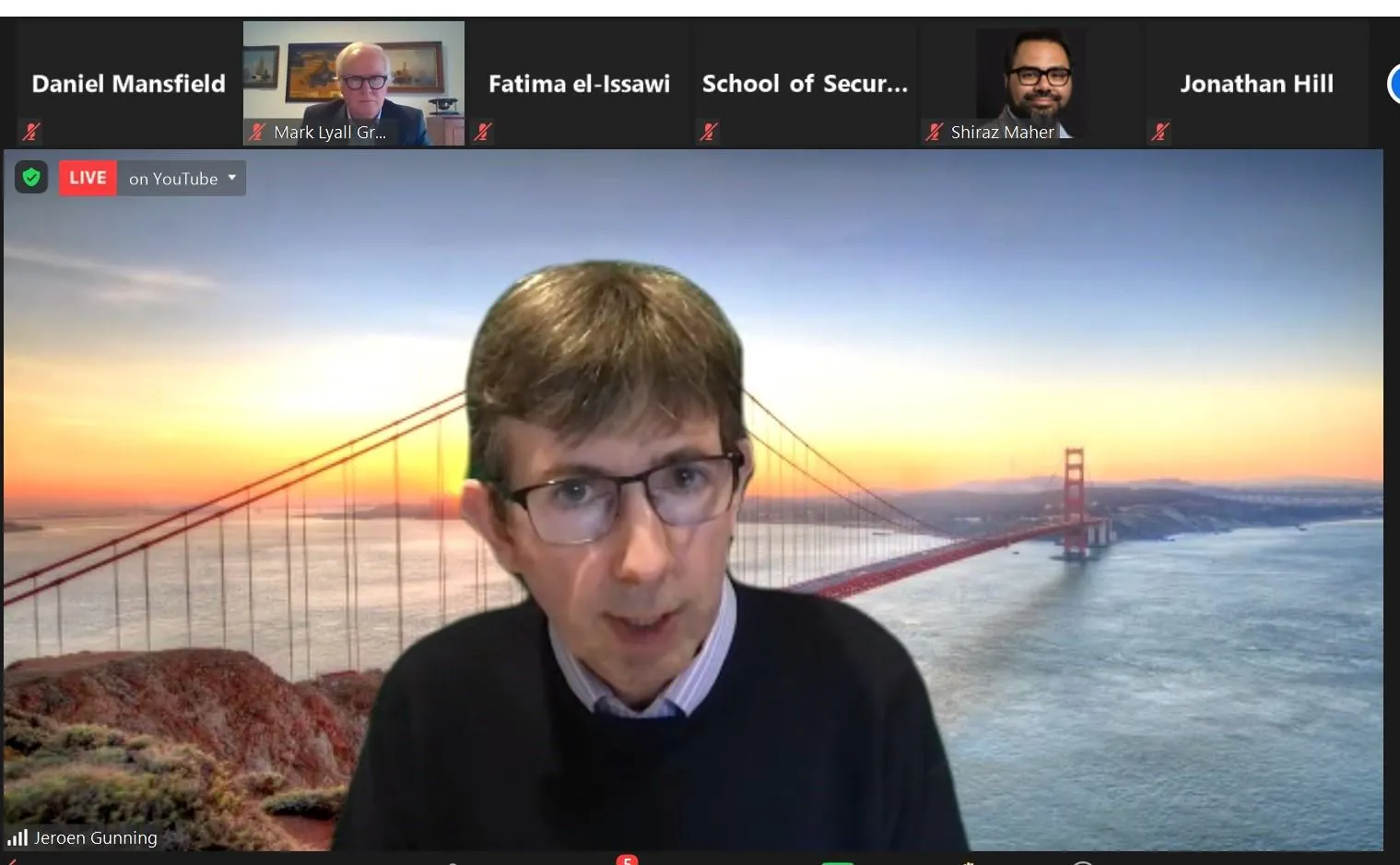The Arab Spring: 10 Years On
Examining the legacy of one of the biggest social and political movements ever experienced in the Middle East.
15 April 2021
A decade on from the start of the Arab Spring, a group of experts discussed its legacy and ongoing influence across the Middle East, at an event hosted by King’s College London.

The Arab Spring: 10 Years On cast a critical eye on how the uprisings of 2011 and beyond radically changed the social and political landscape across the region and how their impact continues to be felt today.
Taking place on 14 April, the event was hosted by the Institute of Middle Eastern Studies and the School of Security Studies, and chaired by Visiting Professor, Sir Mark Lyall Grant, who was British Ambassador to the UN during the uprisings, and also served as national security advisor to David Cameron and Theresa May.
Experts including Dr Fatima el-Issawi, Professor Jeroen Gunning, Dr Andreas Krieg, Dr Nina Musgrave, and Dr Shiraz Mayer, gave talks focusing of different regions of the Middle East, before the floor was opened up to the audience for questions.
Professor Jonathan Hill, director of the Institute of Middle Eastern Studies, said: “I’d like to thank our panellists and chairman for providing some fascinating insights into their areas of expertise. I’d also like to thank our audience for helping to stimulate a lively and thought-provoking debate, which showed the depth of interest that remains in not only the history but also the legacy of the Arab Spring.”

Dr el-Issawi, a reader in journalism and media studies at the University of Essex, started the event with a discussion about media reform in north Africa and how it impacts the democratic transition a decade on from the uprisings.
Prof Gunning, from the Department of Political Economy at King’s, said, in many places, the protests and push for change were still ongoing, and touched on the importance of organisation and the tension between socio-economic and political grievances driving the protest waves. He also spoke about how subsequent protest waves have learned from other events across different nations and utilised technologies such as crowdfunding to organise.
Dr Shiraz Maher, from the Department of War Studies at King’s, then addressed the situation in Syria, looking at how the regime of Bashar al-Assad had responded to domestic uprisings and the descent into civil war by fracturing opposition and halting its ability to reach a critical mass. He also spoke about the legacy of the movement in Syria, including the “breaking of the taboo of chemical weapons” and the mobilisation of foreign fighters who moved into Syria as the protests developed into conflict.
Although the Arab Spring didn’t reach the Palestinian territories, Dr Nina Musgrave, from the Department of War Studies at King’s, looked closely at how the movement has been important for the Palestinians. Dr Musgrave spoke about the significance of earlier democratic votes in the territories which helped address the social and political problems which drove anger in other countries when the uprisings began.

Dr Andreas Krieg, from the Defence Studies Department at King’s, spoke about the Arab Spring in the Gulf states and assessed how the Arab monarchies dealt with the grievances that fuelled the uprisings compared to those states that failed. He spoke about the “old powers” of Syria, Libya and Egypt faltering as Gulf states such as Qatar and the United Arab Emirates emerged from the turmoil “more independent and powerful players”.
Questions from the audience were then taken, with the impact of COVID-19, the prospects for independent media, and the rise of ISIS all considered, among other issues, with panellists ending the event with a discussion on whether the Arab Spring can be seen as a failure or a success, and whether we’ll see future revolutions occurring in the region.

Examining the legacy of one of the biggest social and political movements ever experienced in the Middle East.